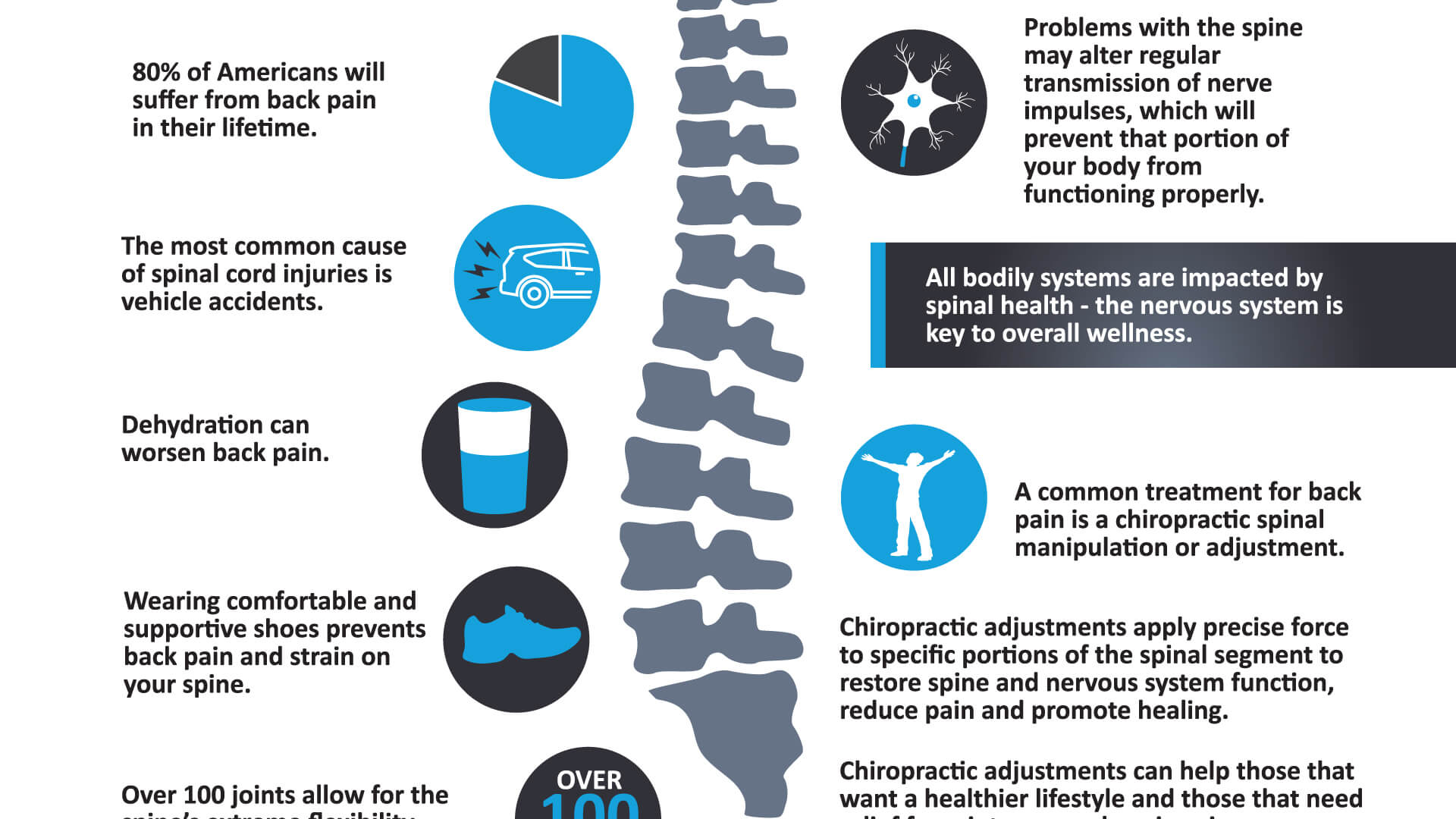Care For Your Back By Discovering The Effect Of Your Diet Plan On Pain Monitoring-- Learn Which Foods Can Offer Alleviation And Which Ones To Stay Away From
Care For Your Back By Discovering The Effect Of Your Diet Plan On Pain Monitoring-- Learn Which Foods Can Offer Alleviation And Which Ones To Stay Away From
Blog Article
Web Content By-Whitley Sharpe
When it pertains to handling your pain in the back, the food options you make can dramatically influence just how you really feel on a daily basis. Visualize being able to alleviate your pain merely by readjusting what you consume. By comprehending the function of nutrition in neck and back pain administration and recognizing which foods to integrate or stay away from, you can take proactive steps towards a much healthier and extra comfy lifestyle. The connection in between nutrition and back wellness is more extensive than you might recognize-- let's check out exactly how particular foods can either relieve or intensify your neck and back pain.
Importance of Nutrition in Back Pain
Nourishment plays a critical role in managing back pain. Your diet plan can considerably impact inflammation levels and overall discomfort levels in your back. Eating a well balanced diet abundant in nutrients like vitamins D and K, calcium, magnesium, and omega-3 fats can help reduce inflammation and reinforce bones, which are necessary for back health and wellness.
In addition, keeping a healthy weight through proper nourishment can alleviate tension on your spinal column, minimizing the danger of back pain.
Additionally, particular nutrients like antioxidants located in vegetables and fruits can assist combat oxidative stress and anxiety and promote healing in the body, including the back muscles and spine.
On the other hand, eating too much quantities of processed foods, sweet drinks, and harmful fats can contribute to inflammation and weight gain, worsening pain in the back.
Foods to Eat for Back Health
To support a healthy and balanced back, incorporating nutrient-rich foods into your everyday meals is key. Including foods high in antioxidants like berries, spinach, and kale can help in reducing inflammation in your back, alleviating discomfort and pain. Omega-3 fats found in fatty fish such as salmon and mackerel have anti-inflammatory residential properties that can profit your back health.
Additionally, consuming nuts and seeds like almonds, walnuts, and chia seeds supplies essential nutrients like magnesium and vitamin E, which support muscle mass feature and decrease oxidative stress and anxiety. Integrating lean proteins such as hen, turkey, and tofu can aid in muscular tissue fixing and maintenance, advertising a strong back.
Don't neglect to include dairy or fortified plant-based options for calcium to support bone health and wellness. Last but not least, moisten with plenty of water to keep your spine discs hydrated and functioning ideally. By including these nutrient-dense foods in your diet, you can nurture your back and support overall back wellness.
Foods to Avoid for Pain In The Back
Choose staying clear of refined foods high in sugarcoated and trans fats when looking for remedy for back pain. https://www.healthline.com/health/lower-back-stretches of foods can add to swelling in the body, which may aggravate pain in the back. Say no to sugary snacks sweet, pastries, and sweet beverages, in addition to convenience food items like hamburgers, fries, and fried chicken that are frequently packed with trans fats.
Additionally, stay away from foods including high levels of refined carbs, such as white bread, pasta, and pastries, as they can increase blood sugar degrees and possibly intensify inflammation in the body.
It's also important to restrict your intake of foods high in saturated fats, like red meat and full-fat milk items, as they can add to inflammation. Refined foods like deli meats, chips, and packaged snacks are commonly high in hydrogenated fats and should be eaten in moderation.
Verdict
In conclusion, taking notice of your diet and making clever food choices can have a considerable effect on taking care of pain in the back. By including nutrient-rich foods like berries, fatty fish, nuts, and lean proteins, and preventing refined and sweet items, you can help reduce inflammation and support in general back health. Keep in mind, what you consume plays an important duty in exactly how you really feel, so ensure to prioritize your nourishment for a healthier back.
